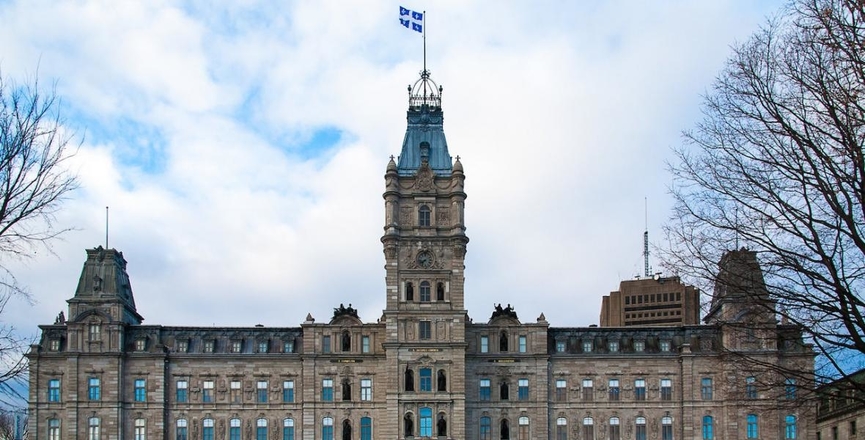Last month, Quebec’s Court of Appeal reduced Alexandre Bissonette’s life sentence without parole from 40 years to 25 years.
In 2017, Bissonette — who was 27 at the time — attacked the Quebec City mosque, killing six men and injuring 19 others, including Aymen Derbali, who became paralyzed for life.
When Justice François Huot delivered Bissonette’s sentence in 2019, he described the acts as “premeditated, gratuitous and abject,” and motivated by “visceral hatred toward Muslims.”
Justice Huot sentenced Bissonette to five concurrent 25-year life sentences and a 15-year term for the sixth count, to be served consecutively.
However, legal scholars described that sentence as “innovative” and “complex.” Some predicted, correctly, that it would be challenged.
Then-prime minister Stephen Harper — motivated by a “law and order” agenda that appealed to his base and its near-obsession with anti-terrorism legislation — introduced the “consecutive sentencing” principle in 2011.
But luckily for Bissonette, he lives Quebec and isn’t a Muslim.
Despite the fact that Prime Minister Justin Trudeau described the actions of Bissonette as a “terrorist attack,” there was always subtle but persistent pushback from Quebec politicians and media.
They viewed Bissonette’s actions not as being symptomatic of systemic islamophobia, but rather as an “isolated” incident. It is by this same logic that Bissonette’s father wrote an open letter to French and English media asking Trudeau to stop calling his son’s action a “terrorist” attack.
In my opinion, the decision to reduce Bissonette’s sentence carries four meanings:
- It reinforces the notion that Quebec’s legal system is somehow aligned with the ideals of second chances and rehabilitation for criminals, according to the principles of “liberté, égalité, fraternité” of the French Revolution.
- It appeases the idea that Bisonette is one of “ours,” and that he doesn’t deserve a heavy-handed punishment.
- It sends a subtle message to the Muslim community: to give them a “lesson” in “civility” and teach them how to remove vengeance from their hearts.
- It sends a clear message to Justin Trudeau, daring him to appeal the judgement with the knowledge that it could have implications for his electoral chances in Quebec.
It is both interesting and ironic to see how in two very publicized and controversial cases, the Muslim community in Quebec became the perfect “guinea pig” for the province to assert itself legally and politically.
Take the example of “Bill 21,” or the Laicity Act. It prohibits public employees from wearing religious symbols at work.
The bill was introduced despite everything that was said against it, and despite what several Muslim women described as a blatant discrimination against them.
In my opinion, the arguments that attracted most Quebecers weren’t the “feminist” or “secularist” ones, but rather the notion, subtly reiterated again and again by Premier Francois Legault and his supporters, that “in Quebec, we do things differently.”
This can be understandable. After all, Quebec has a unique status. Nevertheless, it has become clear that some Quebec politicians are asserting a new brand of “sovereignty” on the backs of immigrants, racialized communities and, in particular, the Muslim community.
With Bill 21, Muslims in Quebec are once again caught between a rock and a hard place. The Laicity Act attempts to send several messages:
-
The idea that Quebec is a progressive province that is serious about women’s rights, despite the fact that Bill 21 removes some women’s rights to take certain jobs.
-
A hidden message: to prove to the public that “chez nous” — we decide on things the way we want to.
-
A third message, directed to the immigrant Muslim community: if you want to prove your loyalty to “our values,” you must leave your traditions in your country of origin.
-
A final message to Justin Trudeau that was repeated during the 2019 federal election: if you legally challenge our law then you are automatically against us.
To be sarcastic, Legault and his supporters should thank the Muslim community for unwillingly serving as pawns to achieve his political ambitions.
More seriously, it is undoubtedly time for action. It has started already with challenges of the constitutional legality of Bill 21, and the likely appeal of Bissonette’s reduced sentence.
Monia Mazigh was born and raised in Tunisia and immigrated to Canada in 1991. Mazigh was catapulted onto the public stage in 2002 when her husband, Maher Arar, was deported to Syria where he was tortured and held without charge for over a year. She campaigned tirelessly for his release. You can follow her on Twitter @MoniaMazigh or on her blog.
Image: Paul VanDerWerf/Flickr



